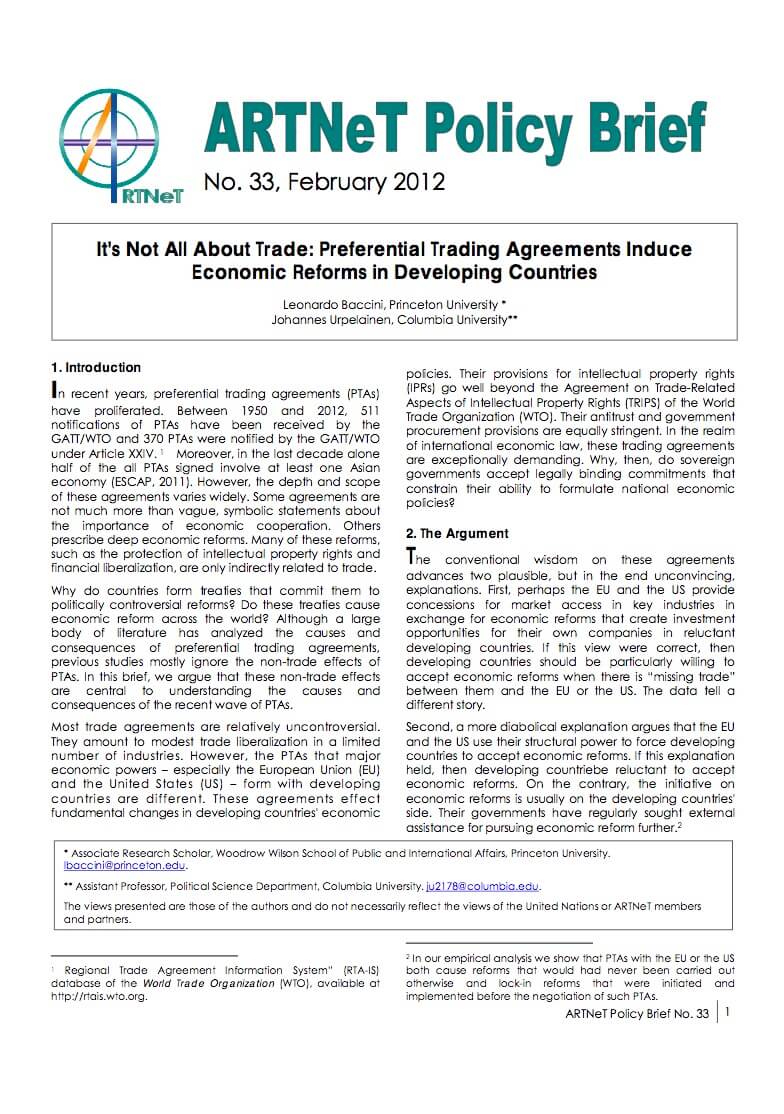It’s Not All About Trade: Preferential Trading Agreements Induce Economic Reforms in Developing Countries

In recent years, preferential trading agreements (PTAs) have proliferated. Between 1950 and 2012, 511 notifications of PTAs have been received by the GATT/WTO and 370 PTAs were notified by the GATT/WTO under Article XXIV. 1 Moreover, in the last decade alone half of the all PTAs signed involve at least one Asian economy (ESCAP, 2011). However, the depth and scope of these agreements varies widely. Some agreements are not much more than vague, symbolic statements about the importance of economic cooperation. Others prescribe deep economic reforms. Many of these reforms, such as the protection of intellectual property rights and financial liberalization, are only indirectly related to trade. Why do countries form treaties that commit them to politically controversial reforms? Do these treaties cause economic reform across the world? Although a large body of literature has analyzed the causes and consequences of preferential trading agreements, previous studies mostly ignore the non-trade effects of PTAs. In this brief, we argue that these non-trade effects are central to understanding the causes and consequences of the recent wave of PTAs.
